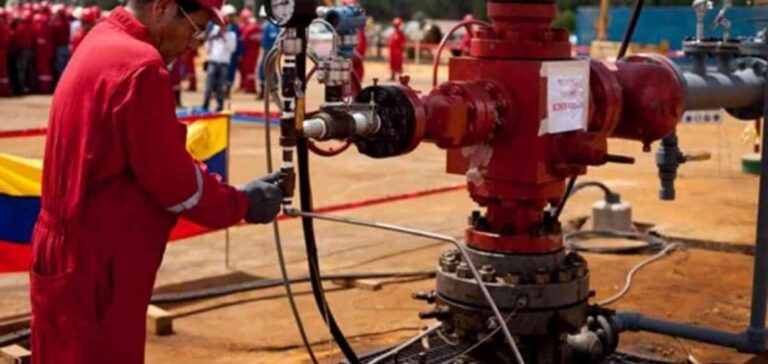Venezuela and Russia recently concluded a series of agreements aimed at deepening their cooperation in the military and oil sectors. These agreements were formalized during a ceremony at the presidential palace in Caracas, in the presence of Venezuelan President Nicolas Maduro and Russian Deputy Prime Minister Dmitri Tchernichenko. These agreements fall within a close relationship between the two nations, a relationship that was initiated under Hugo Chavez’s presidency and enthusiastically continued by Nicolas Maduro.
In terms of defense, these agreements include partnerships in the areas of intelligence and drone usage. Mr. Tchernichenko expressed Russia’s willingness to address the needs of the Venezuelan armed forces in terms of sophisticated weaponry and military equipment. Russia’s military support to Venezuela also extends to providing training and advisory services for the South American country’s armed forces. Venezuelan Vice President Delcy Rodriguez welcomed this support, calling it crucial for the safeguard of national sovereignty and Venezuela’s territorial integrity.
Oil Cooperation and Energy Challenges
The signed agreements also cover energy aspects, particularly in the oil sector, where Venezuela holds vast reserves. Moscow committed to providing Venezuela with technologies for the recovery of extra-heavy crude oil, along with related services. This energy partnership is intended as a lever for the Latin American country, whose oil industry continues to suffer from an aging infrastructure and the effects of international sanctions.
Venezuela’s oil industry, once among the most prosperous in the world, has experienced severe degradation over the years. With a historical production peak of 3.5 million barrels per day (bpd), it fell to a historic low of 300,000 bpd in 2020 due to various factors, including U.S. economic sanctions. Today, the country’s oil production is gradually recovering, approaching one million bpd, thanks to initiatives like those established under the agreements with Russia.
A Strategic Partnership Amidst International Sanctions
Relations between Venezuela and Russia intensified following the imposition of economic sanctions by the United States in 2019. These sanctions aim to weaken Nicolas Maduro’s government, which several Western governments deem illegitimate. In response, Venezuela turned to Russia for the development of its military and energy sectors, making Moscow a key ally in circumventing U.S. restrictions.
Russia remains one of the few countries to have supported Venezuela amid these sanctions. This support was notably demonstrated by Russia’s recognition of Nicolas Maduro’s legitimacy, a significant gesture from Moscow while several nations challenged the outcome of his last election.
Future Prospects for the Russia-Venezuela Partnership
With the signing of these new agreements, Caracas and Moscow are strengthening a strategic alliance that extends until 2030 and potentially beyond. This privileged relationship could prove crucial for Venezuela, whose reliance on international partners has become essential for its economic recovery. However, this partnership could also heighten tensions with the United States, which closely monitors the evolving situation in Venezuela.
By consolidating their partnership, Venezuela and Russia appear to be preparing to jointly tackle the challenges posed by economic sanctions and international pressures. This strategic alliance, both military and energy-based, could thus influence the geopolitical balance in the region for years to come.






















